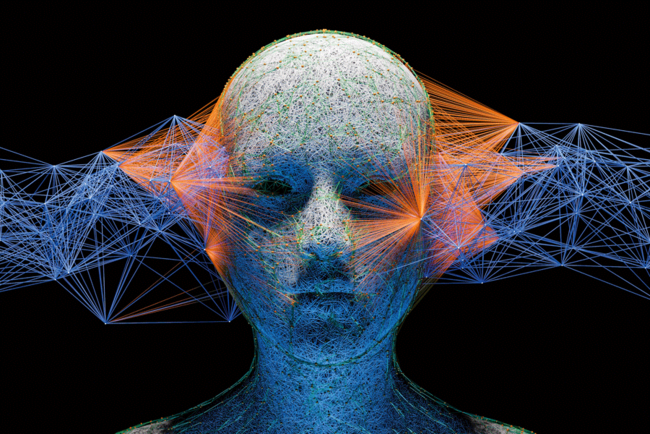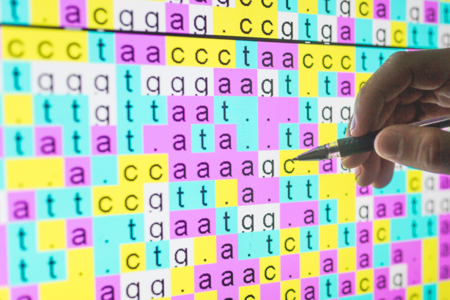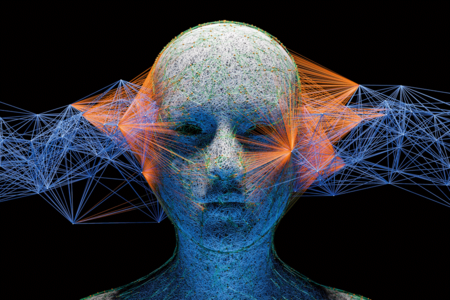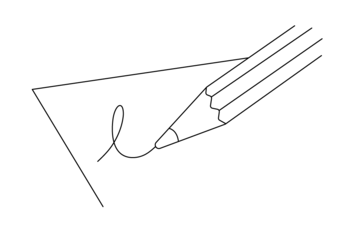About the programme
Join us for Open House
-
7 February,
13:30
- 15:00
Online presentation:
- 13:30 - 14:00
- 14:30 - 15:00
Considering studying at UCPH this September?
Apply by 15 January if you are an applicant from outside the EU/EEA/Switzerland. Apply by 1 March if you are from the EUAdmission and application
To apply for admission to this master's degree programme, you must have completed, or expect to complete, a qualifying bachelor’s degree or a similar Danish or international degree programme which is assessed to be relevant. Apply for admission via the application portal.
Below, you can read more about admission requirements and which documents to upload in the application portal.
Academic admission requirements
Here you'll find the different academic requirements depending on which qualifying degree you hold.
With a Bachelor's degree in
- Computer Science (datalogi), Computer Science and Economy (datalogi-økonomi), Machine Learning and Data Science (machine learning og datavidenskab), or Cognitive Data Science (kognitions- og datavidenskab) from University of Copenhagen
you are granted legal right of admission and guaranteed a place on the Master’s programme in Computer Science if you apply in time to begin within 3 years of the completion of your Bachelor’s degree.
You meet all academic requirements if you hold one of the degrees listed below. Learn about when and how to apply. Note, however, that you still need to document that you meet the programme's language requirements.
From University of Copenhagen
- Computer Science (datalogi) (note, that if you apply in time to begin within 3 years of the completion of your Bachelor’s degree, you have legal right of admission to the Master's programme)
- Computer Science and Economy (datalogi-økonomi) (note, that if you apply in time to begin within 3 years of the completion of your Bachelor’s degree, you have legal right of admission to the Master's programme)
- Machine Learning and Data Science (machine learning og datavidenskab) (note, that if you apply in time to begin within 3 years of the completion of your Bachelor’s degree, you have legal right of admission to the Master's programme)
- Cognitive Data Science (kognitions- og datavidenskab) (note, that if you apply in time to begin within 3 years of the completion of your Bachelor’s degree, you have legal right of admission to the Master's programme)
- Natural Science and IT (naturvidenskab og IT) with the MSc admission course package in Computer Science
From Aalborg University
- Computer Science
From Aarhus University
- Computer Science
From IT University of Copenhagen
- Software Development
From Technical University of Denmark
- Software Technology
From University of Southern Denmark
- Computer Science
If you have a Bachelor’s degree other than those listed above, you must submit additional documentation along with your application so we can evaluate whether or not you meet the admission requirements. Learn about when and how to apply.
If you have a Bachelor’s degree, Professional Bachelor's degree or equivalent from Danish or international universities you are qualified for admission if your programme includes the following:
- Courses in computer science corresponding to at least 45 ECTS credits, subject to the following distribution constraints:
- A minimum of 7.5 ECTS credits within the field of programming, covering at least two substantially different programming paradigms.
- A minimum of 10 ECTS credits within the field of computer systems architecture, including processor architecture, operating systems, data networks, databases, etc.
- A minimum of 10 ECTS credits within the field of theoretical computer science, including algorithms and data structures, computability and complexity, formal languages, programming language theory and compilation, etc.
- Courses in mathematics corresponding to a total of at least 7.5 ECTS credits within the fields of discrete mathematics, linear algebra, and mathematical modelling.
We may also admit applicants who, after an individual academic assessment, are deemed to possess educational qualifications equivalent to those required above.
Qualifying degree and other courses/projects
When we assess whether you meet the admission requirements for the Master's degree program, Danish legislation only allows us to assess your Bachelor's degree. Consequently, you cannot study supplementary courses between Bachelor's and Master's degree programs in order to meet the admission requirements.
If you have passed courses/projects before you complete the qualifying Bachelor's degree, these can be included in the assessment, even though they are not part of the Bachelor's degree program.
- It applies to courses/projects you have taken as single subjects and courses/projects you have taken as part of another study program.
- A maximum of 30 ECTS credits of these courses/projects may be included.
International Bachelor’s degree
You can only get an answer to whether or not your degree meets the admission requirement by applying for admission to the MSc Programme. Only the admission committee can evaluate whether you are qualified or not and they only do this once they have received your application.
Bachelor’s degree from Denmark
You are entitled to 1 pre-assessment for 1 study programme, where, based on an assessment of the documentation you have submitted, we will inform you whether you meet the admission requirements.
This is a service offered by SCIENCE, but it is not a service you have to make use of in order for you to apply for admission.
Language requirements
Unless you have a legal right of admission to the programme you are applying for, you are required to document proficiency in English.
Application deadlines
Study start in September
1 March at 23:59
Application deadline for Danish applicants and applicants from within the EU, EEA and Switzerland.
Open for applications from 16 January. You will receive a reply by 10 June.
15 January at 23:59
Application deadline for applicants from outside the EU, EEA and Switzerland.
Open for applications from 15 November. You will receive a reply by 1 May.
Study start in February (legal right of admission only)
15 October at 23:59
Application deadline for Danish applicants and applicants from within the EU, EEA and Switzerland.
Open for applications from 15 August. You will receive a reply by 10 December.
1 September at 23:59
Application deadline for applicants from outside the EU, EEA and Switzerland.
Open for applications from 1 July. You will receive a reply by 1 December.
How to apply
Choose the category below that fits you and read more about how to apply for admission. You will also find information about application deadlines and documentation on the websites.
Citizen in Denmark, EU EEA og Switzerland
Bachelor's degree with legal right of admission
Bachelor’s degree from Denmark
International bachelor’s degree
Citizen in a country outside EU, EEA or Switzerland
Bachelor’s degree from Denmark
International bachelor’s degree
Prioritisation of applicants
If the number of qualified applicants to the programme exceeds the number of places available, applicants will be prioritised according to the following criteria:
- Total number of ECTS credits within courses in computer science
- Grades in courses in computer science
Limitation on second degrees
If you have already completed a Master's degree, please check out the rules concerning a second degree.
| Admission statistics Computer Science 2023 | |
|---|---|
| Admitted | 163 |
| Admission distribution (legal right/other) | 62% / 38% |
| Applicants | 418 |
| Age average | 25 |
| Legal gender distribution (cpr. - m/f) | 82% / 18% |
| Nationality (dk/international) | 81% / 19% |
| Available spots | No |
Programme structure
The MSc in Computer Science is a two-year programme concluding with a master's thesis. You can select from and combine a wide range of courses during your studies, such as: digital imaging, programming languages, distributed and parallel systems, systems engineering, human-machine interfaces, combinatorial optimization, and computer games.
You can also study Computer Science with a minor subject (only for applicants with a Danish Bachelor’s degree in Biotechnology; see descriptions of this option further down the page).
Study Tracks
You have the chance to study a subject area in depth. By selecting different elective and restricted elective courses you can either compose a programme of your own or choose one of eight available study tracks:
Developing algorithms for computational problems is essential in software development.
During this study track you will obtain solid knowledge of algorithmic paradigms, advanced algorithmic techniques, and various data structures applicable to a large spectrum of problems occurring when developing complex software. You will also be able to argue about solvability of computational problems, correctness, time- and space-complexity of algorithms.
Some track courses focus on theoretical aspects while others are oriented toward practical applications (big data, optimization, bioinformatics, software engineering).
Recommended prerequisites
If you want to follow this study track, your BSc background should include an introductory course on algorithms and data structures as well as solid working knowledge of basic discrete mathematics (elementary set theory, induction proofs, big-O notation, etc.), and linear algebra.
This study track give you a solid foundation in the principles of programming languages and formal methods, with a particular emphasis on exploiting programming-language technology in safety- or performance-critical application domains.
You will learn the basic concepts and methodology for formally defining the meaning of programs and languages, and for proving correctness, equivalence, and other properties of both program fragments and particular language features.
You will get a systematic knowledge of resource-aware models of computation, and of the various fundamental limits on computational performance, or accuracy of program analysis.
At the same time, you will get hands-on experience with performing analysis and transformations of non-trivial programs, with writing tools for assisting in such tasks, and with expressing practical algorithms from a variety of domains in a form suitable for parallel execution.
Recommended prerequisites
Your BSc background should include an introductory compilers or programming-language implementation course, as well as solid working knowledge of basic discrete mathematics (elementary set theory, induction proofs, big-O notation, etc.).
However, even if you have no significant prior background in functional, declarative, or concurrent programming, you will in any case receive an introduction to those topics in the Advanced Programming course, prior to starting on the study track.
The study track in Image Analysis and Computer Vision is aimed at educating specialists in the growing market for vision-based solutions to a broad range of applications. Also part of the track is physics-based modeling and simulations.
The track offers a solid and broad program covering both the theoretical foundation and the state-of-the-art applications within a range of tasks. Recent developments include a significant usage of techniques from Machine Learning. Therefore, the study program includes such courses.
Graduates will acquire a solid background for solving the many unsolved problems in industry, in research, within high-tech companies including those in social media, animated movies etc.
Requirements
Students are expected to have a basic mathematical and statistical knowledge and an extensive knowledge and experience with programming. For the math, introductory courses within linear algebra and statistics at university level are a minimum, and more will indeed show advantageously.
If you have a bachelor in Computer Science and you enjoyed the math/stat-courses, then you probably will feel at home within the IACV-program. If you have a bachelor in math, in statistics or physics, and you have qualifications for acceptance at the MSc-CS-program, then you may fit as well.
The Machine Learning study track educates specialists in development, analysis, and application of machine learning algorithms.
The track offers a solid and broad program ranging from theoretical foundations to practical aspects of machine learning. It provides a wide range of courses covering various aspects of machine learning, including frequentist learning, Bayesian inference, deep learning, online and reinforcement learning, and information retrieval.
Graduates of the machine learning study track will come out with a solid theoretical understanding and hands-on experience in this fascinating and rapidly growing area, which has already revolutionized so many aspects of our life, including speech and image understanding, machine translation, bioinformatics, and many more, and continues to changing our lives at an ever increasing pace. They will be well prepared for solving challenging data analysis tasks and pursuing a career in science or industry.
Requirements
Knowledge of linear algebra corresponding to an introductory undergraduate course on the topic is expected (in particular: vector spaces; matrix inversion; eigenvalue decomposition; linear projections). This knowledge can be acquired/refreshed using any introductory book on linear algebra.
Knowledge of basic calculus at an advanced high-school level is also expected (in particular: rules of differentiation; simple integration). This knowledge can be acquired/refreshed using any introductory book on calculus.
Knowledge of basic statistics and probability theory is a plus (in particular: discrete and continuous random variables; independence of random variables and conditional distributions; expectation and variance of random variables; central limit theorem and the law of large numbers).
Basic knowledge of and experience in programming is required.
Weaknesses in one or more of the above areas should not stop you from following this study track – however, be prepared to spend some extra self-study time.
This study track covers a broad range of courses related to machine learning and language technology including deep learning, advanced courses in natural language processing, and information retrieval.
The language technologies study track equips you with a diverse skillset, combining fundamental and applied courses, as well as a combination of theoretical and practical skills. Graduates will have a strong background in machine-learning approaches to natural language understanding and processing, giving them an excellent platform for pursuing a career in industry or academia.
Requirements
We recommend a BSc in Computer Science, Machine Learning or Data Science.
This track focuses on the design, implementation, and evaluation of interactive computing systems for human use.
It covers the main technological aspects, including classical and emerging interface modalities, such as haptics or virtual reality, with a particular emphasis on mobile interfaces – but also the psychological and cognitive aspects involved in interaction and collaboration, including proper design, execution, and analysis of experiments and user studies.
You will learn about technical aspects such as visual tracking, mobile technology and hardware development, as well as methods for studying users' work and desires (e.g., user-centered design, requirements elicitation, ethnographic methods).
Furthermore, the track focuses on analyzing the complexities of organizations and their use of information technology (e.g., groupware, collaborative systems, massive online learning systems).
Courses emphasize both more theoretical competences (e.g., analyzing research papers) and more hands-on activities (e.g., implementing mobile systems and prototyping hardware).
Requirements
Having completed Human Computer Interaction studies at bachelor level is a requirement; having pursued courses about computer graphics and project management is a benefit.
Sample MSc Theses
To give you an idea of what an MSc thesis in the study track could be about, here are some representative examples of thesis titles from the past few years:
- Detecting and understanding the impact of affect in touch-based computer interaction.
- Distortion Correction on Deformable Displays.
- User-defined midair gestures for large displays.
The Software Engineering study track encompasses all-important aspects of software engineering, including:
- participatory design and user involvement
- requirements engineering and prototyping
- systems analysis and design
- test, validation and implementation
- project management
- software architecture and evolution.
You will learn how to assess user needs and how to build and implement software solutions that are genuinely useful to them. You will also learn how to manage a project, and develop skills in the areas of risk assessment, scheduling, budgeting, and coordination.
This will involve a mixture of theoretical learning, hands on software development, teamwork and collaboration with external parties (e.g., private companies, public institutions, and non-profit organizations).
Sample MSc Theses
To give you an idea of possible thesis topics, here are some examples of thesis titles from the past few years:
- A software platform for development of secure and privacy-protected M-health applications
- Model-Driven Development of RESTful Web Services
- Mobile Phone-based Estimation of Energy Expenditure during Outdoor Movement
- Component reusability in cross-platform mobile solutions
This track offers a unique combination of classic computer science and game development.
In the first semester of the elective part of the programme, you follow courses from the other tracks based on your particular interests, e.g., algorithmics for game AI, simulation for game physics, languages for game scripting, or mobile-interface technology.
In the second semester, you participate in a large, cross-institutional development project at DADIU (the Danish National Academy of Digital Interactive Entertainment), in which you collaborate with animators, sound designers, game directors, and other technical-artistic competences to create a substantial computer game.
This track may be relevant for you not only if you are specifically interested in game programming, but also in related areas such as gamification for health or learning, or simply if you want practical experience working in a large, multidisciplinary development team.
Do a Project in Practice or Study Abroad
You can use some of your elective courses to do a Project in Practice in collaboration with a company or an organisation. You can also choose to study abroad as part of your programme. Read more here:
Master's Thesis
Your degree is capped off with the thesis. Below is a list of previous thesis topics to give you an idea of what is possible:
- Counting Problems in Massive Graphs
- Enforcing Data Consistency in Event-Driven Microservices through Event-Based Constraints
- Generative Neural Networks for Ecosystem Simulation
- Identifying and Utilizing Reliable Agents in Real-Time Crowdsourcing Tasks
- Plant Health and Food Quality Qith RGB and Deep Learning
- Predictive Protein Stability Modeling Through Gaussian Processes and Encoding Methods
- Parallel Implementations of Machine Learning Algorithms
- Security Issues in eBPF Verifier
- Using Deep Learning for Image Segmentation of MRI Scans
- Generative Neural Networks for Ecosystem Simulation
- Implementation of a Blockchain with Native DCR Graphs Smart-Contracts
- Cooperative Virtual Reality Environment for Training Teamwork in the Maritime Business
- Game Physics Engine for Interactive Fluid Effects
Programme Overview
The programme can be structured in different ways, depending on whether you write a thesis worth 30 or 45 ECTS, and whether you start in September or February. Below, you will find course tables showing the study structure if you start in September or February with a thesis worth 30 ECTS.
Example 1: Study Start September, Thesis 30 ECTS
Restricted elective courses: 60 ECTS
Elective courses: 30 ECTS
Master's thesis: 30 ECTS
One block each year equals nine weeks of study and 15 ECTS. The table is primarily for guidance and may be subject to revision.
Year 1
| Block 1 | Block 2 | Block 3 | Block 4 |
|---|---|---|---|
| Restricted elective course | Restricted elective course | Restricted elective course | Restricted elective course |
| Restricted elective course | Restricted elective course | Restricted elective course | Restricted elective course |
Year 2
| Block 1 | Block 2 | Block 3 | Block 4 |
|---|---|---|---|
| Elective course | Elective course | Thesis | |
| Elective course | Elective course | ||
Example 2: Study Start February, Thesis 30 ECTS
Study start in February is only for students with legal right of admission to the programme. Read about legal right of admission.
Restricted elective courses: 60 ECTS
Elective courses: 30 ECTS
Master's thesis: 30 ECTS
One block each year equals nine weeks of study and 15 ECTS. The table is primarily for guidance and may be subject to revision.
Year 1
| Block 3 | Block 4 | Block 1 | Block 2 |
|---|---|---|---|
| Restricted elective course | Restricted elective course | Restricted elective course | Restricted elective course |
| Restricted elective course | Restricted elective course | Restricted elective course | Restricted elective course |
Year 2
| Block 3 | Block 4 | Block 1 | Block 2 |
|---|---|---|---|
| Elective course | Elective course | Thesis | |
| Elective course | Elective course | ||
Restricted Elective Courses
Choose your restricted elective courses from the lists below. Click on each course for a detailed description.
15 ECTS are to be covered as restricted elective courses from the following list:
7.5 ECTS are to be covered as restricted elective courses from the following list:
- Advanced Topics in Deep Learning
- Deep Learning
- Machine Learning A
- Machine Learning B
- Natural Language Processing
- Online and Reinforcement Learning
37.5 ECTS are to be covered as further restricted elective courses from the list above and from the following list:
- Advanced Algorithms and Data Structures
- Advanced Computer Systems
- Advanced Programming
- Advanced Topics in Deep Learning
- Advanced Topics in Human-Centered Computing
- Approximation Algorithms
- Big Data Systems
- Computability and Complexity
- Computational Geometry
- Computational Methods in Simulation
- Computer Game Development Project
- Deep Learning
- Empirical Research Methods in Computer Science
- Machine Learning A
- Machine Learning B
- Medical Image Analysis
- Mobile Computing
- Natural Language Processing
- Numerical Optimization
- Online and Reinforcement Learning
- Proactive Computer Security
- Program Analysis and Transformation
- Programming Massively Parallel Hardware
- Randomized Algorithms
- Search Engines
- Semantics and Types
- Signal and Image Processing
- Software Engineering and Architecture
- Software Security
- User Interface Technology
- Project outside the Course Scope
- Thesis Preparation Project
Study Computer Science with a Minor Subject
If you hold a Danish Bachelor’s degree in Computer Science, including the required courses, you can study Computer Science with a Minor Subject. Read more below:
Please note: The MSc in Computer Science with a minor subject is only for applicants with a Danish Bachelor’s degree in Computer Science including the required courses from the minor subject. The minor subject consists of courses taught in Danish, where the first part is compulsory in the Bachelor’s degree, and the remaining is part of the MSc.
You can study computer science with a minor subject if you want to acquire the competences to teach or disseminate both subjects. This enables you to teach in Danish upper secondary schools.
Furthermore, you will be qualified to work e.g., as a researcher, developer, or consultant in the IT sector, as well as in the financial or biomedical industry, or in public administration. You will also have the prerequisites for further studies e.g., a PhD programme.
The programme can be structured in different ways depending on whether your minor subject is within or outside the field of science, and whether you start in September or February. Below, you will find course tables showing the study structure if the minor subject is within the field of science with study start in September or February.
Example 1: Study Start September, Minor Subject Within the Field of Science
Restricted elective courses: 45 ECTS
Minor subject: 45 ECTS
Master's thesis: 30 ECTS
One block each year equals nine weeks of study and 15 ECTS. The table is primarily for guidance and may be subject to revision.
Year 1
| Block 1 | Block 2 | Block 3 | Block 4 |
|---|---|---|---|
| Minor subject | Minor subject | Minor subject | Minor subject |
| Minor subject | Minor subject | Restricted elective course | Restricted elective course |
Year 2
| Block 1 | Block 2 | Block 3 | Block 4 |
|---|---|---|---|
| Restricted elective course | Restricted elective course | Thesis | |
| Restricted elective course | Restricted elective course | ||
Example 2: Study Start February, Minor Subject Within the Field of Science
Study start in February is only for students with legal right of admission to the programme. Read about legal right of admission.
Restricted elective courses: 45 ECTS
Minor subject: 45 ECTS
Master's thesis: 30 ECTS
One block each year equals nine weeks of study and 15 ECTS. The table is primarily for guidance and may be subject to revision.
Year 1
| Block 3 | Block 4 | Block 1 | Block 2 |
|---|---|---|---|
| Minor subject | Minor subject | Restricted elective course | Restricted elective course |
| Minor subject | Minor subject | Restricted elective course | Restricted elective course |
Year 2
| Block 3 | Block 4 | Block 1 | Block 2 |
|---|---|---|---|
| Minor subject | Minor subject | Thesis | |
| Restricted elective course | Restricted elective course | ||
Restricted Elective Courses
Choose your 22,5 ECTS restricted elective courses from the lists below. Click on each course for a detailed description.
You must choose at least one (7.5 ECTS) of the following courses:
- Advanced Topics in Deep Learning
- Advanced Topics in Machine Learning
- Deep Learning
- Machine Learning A
- Machine Learning B
- Natural Language Processing
Choose your remaining restricted elective courses from the list below:
- Advanced Topics in Human-Centered Computing
- Advanced Topics in Deep Learning
- Advanced Topics in Machine Learning
- Approximation Algorithms
- Computability and Complexity
- Computational Geometry
- Computational Methods in Simulation
- Deep Learning
- IT Innovation and Change
- Machine Learning A
- Machine Learning B
- Medical Image Analysis
- Mobile Computing
- Natural Language Processing
- Neural Information Retrieval
- Numerical Optimization
- Online and Reinforcement Learning
- Proactive Computer Security
- Program Analysis and Transformation
- Programming Massively Parallel Hardware
- Randomized Algorithms
- Semantics and Types
- Signal and Image Processing
- Software Engineering and Architecture (15 ECTS)
- User Interface Technology
- Visualisation
- Project outside the course scope (7.5 or 15 ECTS)
- Thesis Preparation Project
15 ECTS are to be covered as restricted elective courses from the following list:
7.5 ECTS are to be covered as restricted elective courses from the following list:
- Advanced Topics in Deep Learning
- Deep Learning
- Machine Learning A
- Machine Learning B
- Natural Language Processing
- Online and Reinforcement Learning
37.5 ECTS are to be covered as further restricted elective courses from the list above and from the following list:
- Advanced Algorithms and Data Structures
- Advanced Computer Systems
- Advanced Programming
- Advanced Topics in Deep Learning
- Advanced Topics in Human-Centered Computing
- Approximation Algorithms
- Big Data Systems
- Computability and Complexity
- Computational Geometry
- Computational Methods in Simulation
- Deep Learning
- Empirical Research Methods in Computer Science
- Machine Learning A
- Machine Learning B
- Medical Image Analysis
- Mobile Computing
- Natural Language Processing
- Numerical Optimization
- Online and Reinforcement Learning
- Proactive Computer Security
- Program Analysis and Transformation
- Programming Massively Parallel Hardware
- Randomized Algorithms
- Search Engines
- Semantics and Types
- Signal and Image Processing
- Software Engineering and Architecture
- Software Security
- User Interface Technology
- Project outside the Course Scope
- Thesis Preparation Project
Curriculum
Learn more about the programme in the: Curriculum for MSc in Computer ScienceCurriculum for MSc in Computer Science with a Minor SubjectShared section of the curriculum
Please note: The programme curriculum is for the current academic year. A revised curriculum for the coming academic year will follow.
Video: Eva and Jacob talk about the study programme in Computer Science.
Career opportunities
A degree in Computer Science opens the door to a tremendous range of career and employment possibilities. Whether you dream of a career as a programmer or software designer, you will work with many creative applications of IT. Or, perhaps your ambitions reside more within a research oriented career, within fields such as logistics, medical diagnostics, or robotics.
The MSc programme in Computer Science offers a solid foundation in both theoretical and practical computer science, offering you the chance to explore the academic and commercial perspectives of the field at the very highest level.
Computer Science is for those of you who are creative, can think logically, work in a structured manner, and want to immerse yourself in the theoretical or practical aspects of IT.
Competence Description
- You get a strong foundation in computer science.
- You will have experience in solving practical problems in computer science.
- You can develop advanced software. This includes all aspects of the process, from concept and requirements analysis to design, implementation, and testing. It applies to all fields of application, from robotics and gaming, to the development of new programming languages or methods of program development.
Employment
An enormous demand for computer scientists exists throughout the private sector. You will also find numerous opportunities for employment in public institutions, as a university researcher, or within other educational establishments. Your work might consist of the design and development of new systems and new software, or the maintenance and expansion of existing systems, including advice and consultancy.
Furthermore, many computer scientists engage in entrepreneurship and establish companies of their own.
Student life
In the university's Department of Computer Science you will be part of an active and international study environment. Our canteen is run by students, you can join our football team which plays against other SCIENCE teams or spend a weekend at our LAN-party, DIKULAN. You can also play board games with fellow students at our DICON days.
If you have a more creative side and enjoy painting or playing music, you can join other SCIENCE students in Cafe KAFKA. The University sports association, USG, offers all students more than 80 different sporting activities. There are plenty of opportunities to meet and socialise with fellow students.
Where Will I be Studying?
The Computer Science programme is primarily based at North Campus.
The University’s North Campus is centrally located. It is home to scientific, pharmaceutical and health science research, and neighbour to the Copenhagen University Hospital (Rigshospitalet), Metropolitan University College, and Fælledparken.
Many exciting building activities are going on at the campus areas at the moment, including the construction of a new Natural History Museum and the Niels Bohr Building. Furthermore, North Campus is part of a coherent district of science, health and interdisciplinarity – Innovation District Copenhagen – which is being developed these years.
You can read more about campus life at the university here:
Here you will find some useful links and videos about student life and housing in Copenhagen, and the welcome programme for international students at Faculty of Science.
- Information about living in Copenhagen – plus practical information on housing, civil registration number, residence permit and more
- General information on student life and studying at University of Copenhagen
- Housing Foundation Copenhagen is an independent entity which assists international students and researchers at University of Copenhagen in finding accommodation. Visit Housing Foundation Copenhagen here
Video: Study Computer Science in Copenhagen, Denmark
Disha from India and Petros from Greece study computer science at the University of Copenhagen in Denmark. They tell us what it is like to live and study in Denmark.
Video: SCIENCE Welcome Programme
The SCIENCE Welcome Programme is a great way for international students to be introduced to the Faculty of Science at the University of Copenhagen.
Testimonials
Read interviews with students and graduates from the Master of Science programme (MSc) in Computer Science.
“It’s not easy, but it’s certainly not boring either,” says Henrik G. Jensen, who is doing an MSc in Computer Science at the University of Copenhagen.
Why did you choose to go on to do the master’s programme?
It’s on the master’s programme that all the cool stuff happens! I already knew this from the master’s-level elective courses I did on the bachelor’s programme.
It’s everything we’ve worked so hard to get to do. Doing subjects that are based more on articles and current research than on books and slides, you suddenly get the opportunity to make a difference. Whether it’s learning how to start a business or doing some cutting-edge research. It’s not easy, but it’s certainly not boring either.
What do you find most interesting about the Computer Science programme?
Exploring data and hunting for previously unseen connections. I was initially very driven by machine learning and data mining, and then later by image analysis – although the two fields overlap a lot.
Specifically, I’ve always been very interested in the interdisciplinarity of the medical field. Right now I’m working on a really exciting master’s thesis on generating an average neurological map of the brain. I find it really motivating that as a computer scientist you are potentially able to help ten times more people than, say, a doctor in the course of your working life.
What are your thoughts on the study environment and your personal involvement in it?
I’ve travelled a lot and have had IT support jobs around the university, and I can definitely say one thing: Computer Science students are very fortunate to have a unique and well-knit study environment that you don’t see anywhere else.
It’s a tough degree programme, but there’s something for everyone socially – from the board game club and anime fans to the revues and football club. I’ve been involved in most things, and helped to start a new brewers’ guild, ‘DQBrew’, at the department. Students and researchers of all ages and from different year groups meet in this forum to brew beer, cider, mead and much more.
Since this interview, Henrik has moved on to get a PhD. in Computer Science from University of Copenhagen. He is now working as a Data Specialist at Ferring Pharmaceuticals.
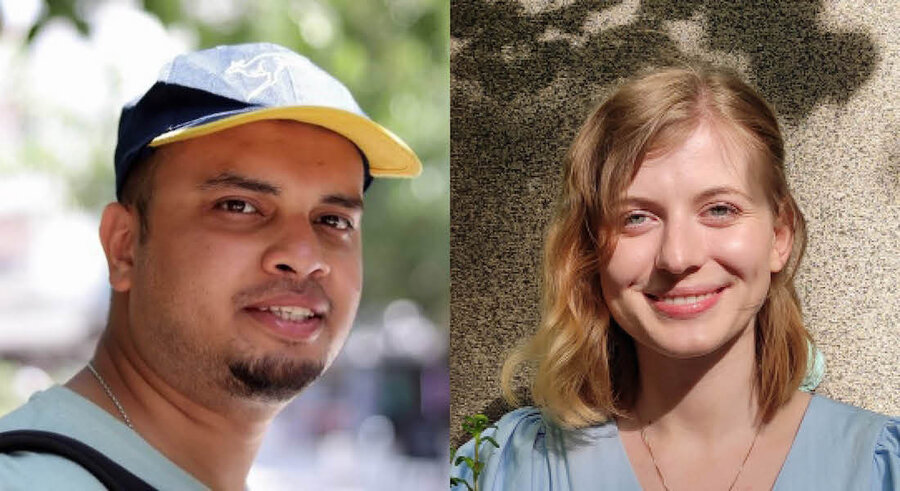
Anna Lesniak and Prangshuman Das had a distinguished ending of their MSc programme. As the first authors of their respective scientific papers, they started their careers with an extra advantage.
And it is not just any conference that the two candidates will soon be attending. DEBS is the leading conference in the field of distributed and event-based systems, which is a hot topic in the industry. It is the place where the greatest minds of the field gather about the latest results and, this year, only 27 percent of the submitted papers ended up being accepted.
- I am grateful that my supervisors believed in me and suggested that I write a scientific paper based on my thesis. As a student at DIKU, you can easily choose to carry out projects that contribute to research. I look forward to presenting our work at the conference, says Anna Lesniak, who now works at the Tech Unicorn company Zendesk*.
Contributes to a new area
Anna and Prangshuman have both written their thesis on so-called microservices – a new software architecture where the application is divided into autonomous and smaller services instead of having one single deployment unit. In fact, it is so new that a lot more knowledge about this special architecture is needed.
This didn’t turn out to be a hindrance for Anna and Prangshuman who joined the research group at the department that works with event-based systems, particularly microservices. Professor Yongluan Zhou, who is also head of studies for MSc in Computer Science, leads the group. Anna and Prangshuman were also supervised by the PhD student Rodrigo Nunes Laigner.
- It was a cherry on top to contribute to an academic conference while working on my thesis. I’m proud to have achieved this, and it would not have been possible without the resilient support and guidance from Yongluan and Rodrigo. In general, I experienced an encouraging learning and teaching environment at the department, says Prangshuman Das, who now works at Microsoft.
In short, Prangshuman has created a tool to help microservice software developers make better design choices. Anna developed a system that will ensure that software developers develop microservices correctly.
- Anna and Prangshuman have each done a piece of work that can help solve some real challenges. Microservices are used by a handful of large companies like Amazon, but it is something that many more are interested in implementing, says PhD student Rodrigo Nunes Laigner.
*Anna Lesniak is now working as a Senior Software Engineer at the LEGO Group.
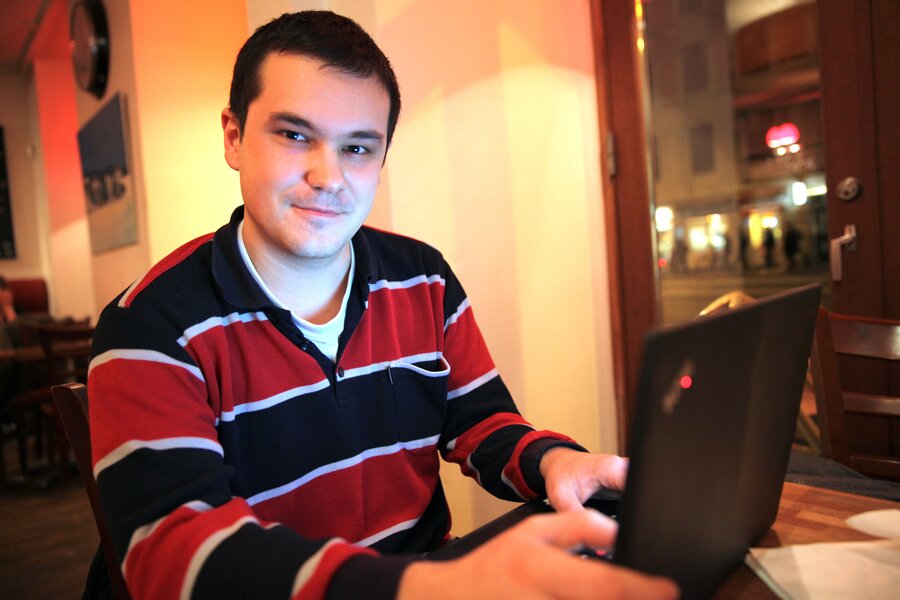
Why did you choose Computer Science?
I was very passionate about maths in upper secondary school. We had a lot of Olympiads – you don’t have so many in Denmark – which are contests between the best in a certain field. So it was a logical step to choose computer science. Actually, my high school profile was mathematics and informatics.
Tell us about your background …
I completed my bachelor in computer engineering in Cluj-Napoca. It was a four-year technical bachelor. I had a combination where I learned about the software parts and also a lot about the hardware.
In addition to my studies I had been working during the last years of my bachelor and I continued working a year afterwards as software engineer for a multinational company doing mobile phone development and developing software for car navigation embedded systems for Garmin. In 2011, I also started a master’s in Romania while working full time. I wanted to learn more, and I was looking for new challenges.
So why did you choose to go to Denmark?
At that time my girlfriend went to Lund in Sweden to study on the Erasmus programme. I went to visit her, and we made a trip to Copenhagen for two days, and I really liked the city. So that were two good reasons to come here: to stay close to her and to study in a nice city.
Was it difficult to get a job?
Actually, I applied to many student jobs before I arrived, and I got two job offers. I decided to go for Microsoft and was a student worker there for 18 months. So when I finished my studies, I applied for a full time position at Microsoft here in Copenhagen, got the job and have been working there now for 8 months. But when I applied for this job it was quite hard: I had to do five interviews. There was also the option of going forward with a PhD which didn't suit me that well.
What are you working on?
I’m a software development engineer, and I’m working on Microsoft Dynamics Marketing*. We are doing business solutions for companies. Currently, I am working on a feature which allows marketing for companies via SMS. I have the opportunity to work with some of the brightest engineers in the world. I am really grateful for it.
There are a lot of interns and student workers from all over the world. In Microsoft Dynamics Marketing team there are over 20 nationalities from all over the world. It is a great opportunity to get insights about different cultures and nationalities.
Coming from the university, did you feel prepared for the job?
My previous experiences helped a lot, but there are still new things I learn every day. During my MSc programme I had a lot of internships. For instance I had an internship in Saxo Bank and for a company called Macom, who are doing a digital educational system. So we were working with things that are useful in real life, and I got a lot experience.
What other possibilities would you have now with your background?
One possibility is a PhD. I was part of a project about machine learning, which is a very theoretical subject. I could have continued the research I made for my masters thesis.
My MSc profile was highly focused on computer science innovation and entrepreneurship and we had a lot of projects where we developed concepts. Most of them were part of group work – very good ideas, and most of them could actually be developed further. So it is an option to make your own company. Not so many have started companies yet, but one of my friends already had a company while we were studying, and he is still running it.
What other kind of jobs could you have now?
We can work for all kind of companies dealing with data. My studies give several options: work with machine learning, entrepreneurship or research … so you can follow your own passion. One of the nice things about the MSc programme is that you can choose around 50% as optional classes. You can choose to specialize or be a generalist.
Would you recommend the programme to others?
Yes, I would definitely recommend it. There are so many options. It's hard work but one can get a scholarship and the education is free, which is amazing. I never heard about that before – to be paid to study! But if you don’t have a scholarship and don’t get a job, then it’s very expensive to live here. Accommodation and food are very expensive. Bread is like four or five times as expensive as in Romania. So you have to get a job very fast or otherwise your parents should support you.
Do you have any good advice for new students?
It’s so hard to find a place to live. You have to apply for accommodation even before you apply for the university. If you want to go next year – apply now! And then you have to find a job. I didn’t have one the first month. I had savings from my recent job in Romania, but that period was tough for me.
*Nikolae is still living in Denmark. He is now working as a Software Architect at Danske Bank.
Contact student guidance
Contact SCIENCE Student Service
Do you have questions about the programme structure, study or career opportunities, admission requirements or application procedure, please feel free to contact SCIENCE Student Services.
Contact SCIENCE Student ServicesLocation
- Faculty of Science, North Campus, Universitetsparken 5, DK-2100 København Ø.
